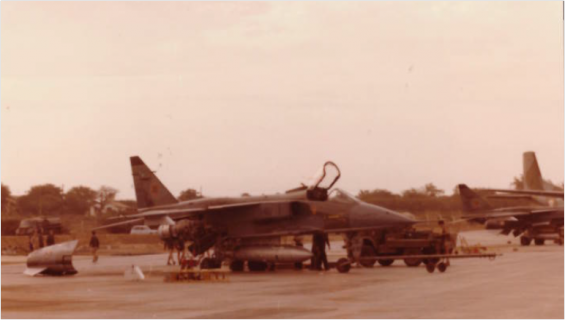France’s military interventions in Africa during the 1970s were many, but the one that took place between 1978 and 1979 was the first of its kind. While Morocco was fighting a war against the Polisario, Mauritania, which was also targeted by the guerilla fighters of the Front, sought the help of France, which later became the only third-party to intervene militarily in the Western Sahara conflict.
France’s intervention was not a sudden decision. In fact, the step was part of an agreement signed on September 2, 1976 with Mauritania. The deal titled «accord d’assistance militaire technique» (technical military assistance agreement) allowed Mauritania to get «French aid in the organization, equipping and training of the national armies and police forces», wrote Stephen Zunes and Jacob Mundy in their book «Western Sahara : War, Nationalism and Conflict Irresolution» (Syracuse University Press, 2010).

Two years after the signing of this accord, France had to make use of its military presence in Mauritania. The Polisario Front «conducted several attacks on Zouerate, a mining settlement of great economic significance to Mauritania». In one of these attacks «two French citizens were killed», while six others were taken hostage by the Front’s guerilla fighters.
Operation Lamantin, the first of its kind
The French government was irritated by these attacks which targeted its nationals and affected one of its vibrant economic incomes, namely the iron mines in Zouerate. Shortly after the attack, France called on «Algeria to rescue the prisoners», wrote Michael Brecher and Jonathan Wilkenfeld in «A Study of Crisis» (Univ. of Michigan Press, 1997). But France’s attempts to free its nationals were in vain after it failed to «establish communication» with the Polisario.
In December 1977, France moved to action, after its president Valéry Giscard d’Estaing announced the launching of Opération Lamantin (manatee) against the Polisario, becoming the first country to militarly intervene in the Western Sahara conflict.
France deployed its military and paramilitary troops and sent «reinforcements to an already existing military presence in the region», Raiymbek Mukhamediyar said in «Opération Lamantin». He recalled that «about 1,400 French troops were located in Cape Verde, Senegal» for the operation.
A military operation with two objectives
While, the military intervention which had «the French Air Forces use combat aircraft to fight against the Polisario’s forces», was seen as a counter attack in the favor of its nationals killed and kidnapped by the Polisario, the operation had other objectives.

According to Stephen Zunes and Jacob Mundy, «the hostages had provided only a pretext for the French government to strike back at the Polisario, which had seriously destabilized its client regime in Mauritania and was increasingly threatening Morocco».
But Operation Lamantin was not that successful. The same book indicates that the French intervention could «do nothing to counteract the low morale in the Mauritanian forces, which eventually led to the overthrow of President Mokhtar Ould Daddah».
In July 1978, Operation Lamantin came to an end and the French hostages were freed. «The French government then reverted to a behind-the-scenes position and reportedly played a part in expediting the Polisario-Mauritania peace accord», signed in August 1979.

Shortly after the ceasefire, Mauritania pulled out of Western Sahara, adopting a new policy towards the Polisario Front and recognizing the so-called «SADR» in 1984.





 chargement...
chargement...













